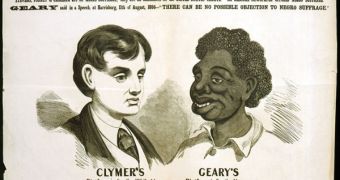In a study conducted by researchers from Yale University, the York University, and the University of British Columbia, behavior psychologists learned that people tended to accept more racist remarks than they themselves were willing to admit. For the test, 120 non-black participants were divided into groups, and made either to watch a Black man being coursed at, see the incident on tape, or hear about it from someone else.
Despite the fact that Barack Obama is about to be instated as the United States' first Black president, there are still people in the country who never managed to get past all the pseudo-historic “values” of an all-white bus, or party, or other such things. In short, while some white people point fingers at and accuse those who harassed an African-American, and furthermore refuse to work with them, others simply ignore such incidents, as if they never happened.
The subjects who witnessed the actual act of aggression proved to be extremely indifferent to what had just happened. Two actors were made to reenact the brawl, and then the researchers asked the participants what they felt about it. Most of them said that they didn't react because it was not in their interest to, while others stated they would have no problem working with the white aggressor in the future, if the opportunity came along.
On the other hand, people who saw the incident on tape, or were told about it by someone else, exhibited a far less inclination to engage in work relations with the aggressor. They qualified his behavior as indecent and wrong, and demanded that he be punished.
In reality, psychologists say, if people around a similar incident were to confront the aggressor, statistics show that a very small percentage of them will ever use foul remarks in public again. However, the study concludes that persons actually witnessing such an incident are rarely ready to pay the emotional toll that such a confrontation would imply, and prefer to stand idly by.
As long as racism continues to be such a widespread problem in America, even in the 21st century, when this country is the most powerful nation on Earth, how can the outside world be persuaded that democracy is the way to take, over dictatorship and other types of authoritarian regimes?

 14 DAY TRIAL //
14 DAY TRIAL //